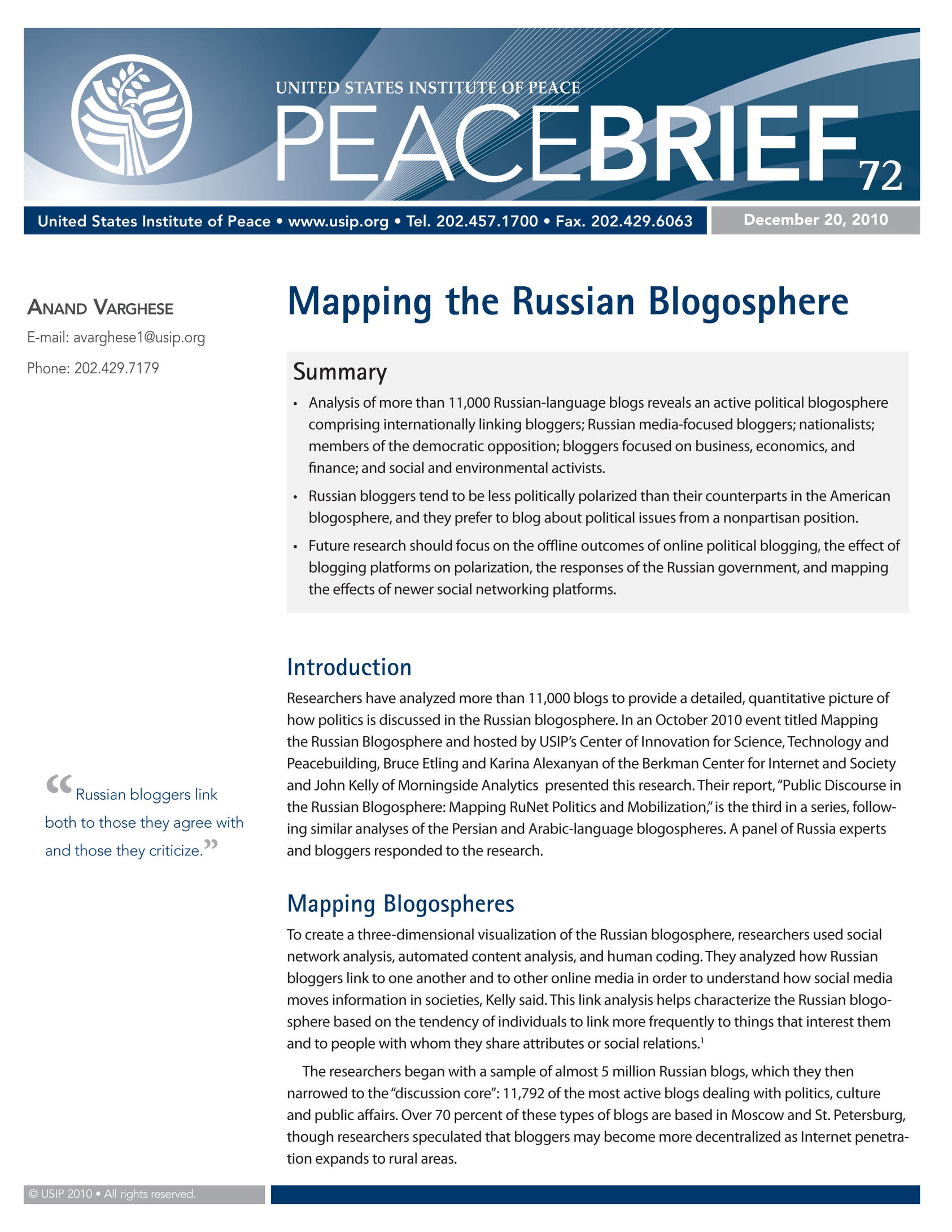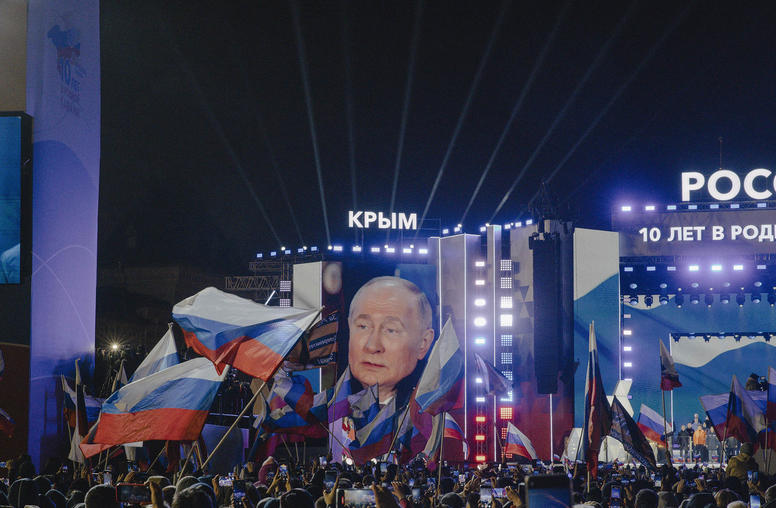Mapping the Russian Blogosphere
At a USIP public event held on October 19, 2010, researchers presented a mapping conducted by Harvard University’s Berkman Center for Internet and Society and Morningside Analytics. The event was part of USIP’s ongoing Blogs and Bullets initiative. This Peace Brief summarizes the methodology and findings of the Berkman Center/Morningside Analytics researchers and the panel discussion that followed.

Summary
- Analysis of more than 11,000 Russian-language blogs reveals an active political blogosphere comprising internationally linking bloggers; Russian media-focused bloggers; nationalists; members of the democratic opposition; bloggers focused on business, economics, and finance; and social and environmental activists.
- Russian bloggers tend to be less politically polarized than their counterparts in the American blogosphere, and they prefer to blog about political issues from a nonpartisan position.
- Future research should focus on the offline outcomes of online political blogging, the effect of blogging platforms on polarization, the responses of the Russian government, and mapping the effects of newer social networking platforms.
About this Brief
This Peace Brief was written by Anand Varghese, senior program assistant to the Center of Innovation for Science, Technology and Peacebuilding. At a USIP public event held on October 19, 2010, researchers presented a mapping conducted by Harvard University’s Berkman Center for Internet and Society and Morningside Analytics. The event was part of USIP’s ongoing Blogs and Bullets initiative, which seeks to understand online discourse as a cause of conflict and a means for dialogue and has published two reports identifying the need for new analytical tools in this field. This Peace Brief summarizes the methodology and findings of the Berkman Center/Morningside Analytics researchers and the panel discussion that followed.


